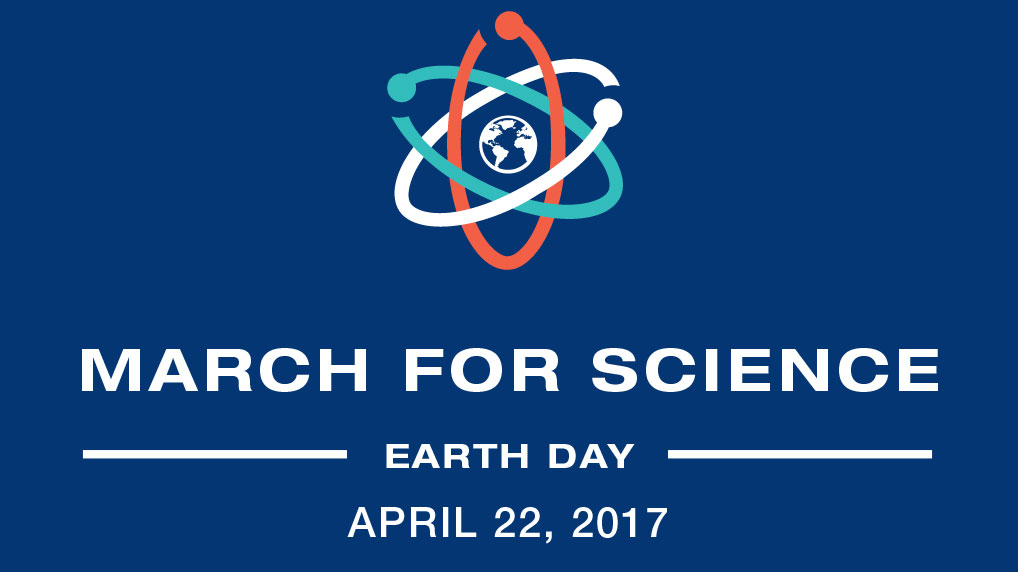
On April 22, the largest rally in support of science ever – the March for Science – will take place in Washington, D.C., and simultaneously in more than 400 cities across the U.S. and the world. Hundreds of thousands of scientists and science advocates will come together with one voice to call for support for science, support for publicly funded research, and the need for policymakers to enact evidence-based policies.
The Endocrine Society is a proud partner of the March for Science and encourages all members to participate in this important event. Endocrine News spoke with Endocrine Society member Joanna Spencer-Segal, MD, PhD, University of Michigan, Ann Arbor, a member of the Steering Committee for the March for Science, who explains that the mission of the March includes raising awareness “about the very real role that science plays in each of our lives and the need to respect and encourage research that gives us insight into the world.”
Endocrine News: Why did the Endocrine Society decide to participate in the March?

Joanna Spencer-Segal: Although I have been involved in Endocrine Society volunteer leadership for many years, currently as a member of the Research Affairs Core Committee, for this particular issue I was mostly acting as a liaison for March for Science, as a member of their steering committee. What I can tell you is that March for Science has reached out to scientific societies that we feel share our mission of nonpartisan promotion of funding for science, communication of science, and incorporation of scientific evidence into policy making.
EN: What should ES members who participate in the March expect?
JSS: I encourage all Endocrine Society members to participate in the national march in D.C. or in their local march. In Washington, members can expect a highly visible celebration of science and its importance for everyday people. The main event will be held on Earth Day, April 22, 2017. It will begin with Teach-In activities and a rally on the National Mall in the morning, and continue with a march through the streets of the city. Members should stay tuned for details about other events taking place before and after the march. You can stay up to date by checking the website, Marchforscience.com, and following the march on Facebook and Twitter.
EN: Although the March for Science is happening as this new administration starts, we want to make it clear it’s not a protest. Can you speak more to that?
JSS: The March for Science is a nonpartisan event. The event was catalyzed by the surge of advocacy energy that has accompanied the change in administration, but it is not a partisan political statement. We stand for science, and science is not a partisan endeavor. Of course, participants in the March are energized by concerns over policy proposals that they feel are opposite to our mission. For example, as scientists we support climate science and advocate for the incorporation of this evidence into policy making. We support robust public funding for science. But we specifically advocate for science and not for or on behalf of any particular political party or politician. The March is also not a protest – in fact we encourage participants to think of it not as a ‘negative’ event but as a ‘positive’ event, for the promotion of science and how it has served and can continue to serve the public good.
The March for Science is a nonpartisan event. The event was catalyzed by the surge of advocacy energy that has accompanied the change in administration, but it is not a partisan political statement. We stand for science, and science is not a partisan endeavor.
EN: The March is just the beginning. What’s your advice for keeping up the energy to remain vigilant?
JSS: Keeping up the energy is really important! The March leadership is hard at work crafting a plan to help do this. We encourage all participants, scientists, and people who support science to continue to remain active on a local level. Local policy makers need to hear that their constituents value continued scientific progress and the incorporation of scientific evidence into policy. We hope that after participating in this event, scientists will continue to participate in advocacy and that members of the public will continue to demand attention to science in all policy making. A continued partnership between scientists and the public is one of the long-term goals of this event.
[Editor’s Note: Be sure to check out the May issue of Endocrine News for a feature article on the March for Science.]

